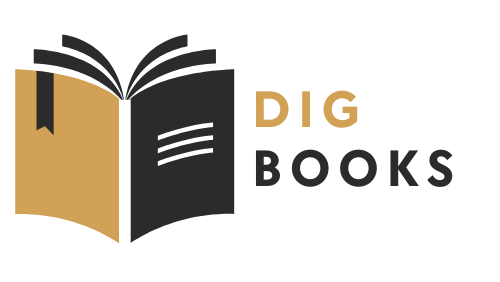21 Best Anthropology Books For In-Depth Exploration
21 Best Anthropology Books For In-Depth Exploration
In an era awash with information, finding the best anthropology books can be a daunting endeavor. Yet, it’s a challenge worth embracing for those keen on diving into the intricate tapestry of human societies. These books unlock the doors to understanding our past, present, and possible futures through the meticulous examination of cultures, languages, and evolutionary milestones.
Key Points:
- Anthropology books offer insights into human societies, cultures, and evolutionary milestones.
- They provide a deeper understanding of human behavior, societal development, and cultural diversity.
- Reading anthropology books fosters empathy, global understanding, and appreciation for human diversity.
- These books contribute to our understanding of history by connecting past events with the present.
- Recent anthropology books reflect on current global issues such as climate change and globalization.
- Anthropology books challenge stereotypes, offer valuable lessons for the future, and open minds to different perspectives.
- The best anthropology books serve as beacons, shedding light on the intricacies of human culture, behavior, and the impact of the environment.
Anthropology, in its broadest sense, invites us on a journey across time and space, offering insights into the very essence of humanity. From the wisdom of ancient civilizations to the latest scientific revelations about human behavior, these works serve not only as educational resources but also as a source of endless fascination.
The curated list that follows is a labor of love, forged from a blend of critical acclaim, groundbreaking research, and the profound personal impacts these works have had on readers around the globe. Whether you’re a curious newbie or a seasoned reader of anthropological literature, this collection promises to enlighten, challenge, and inspire.
The Significance of Anthropology in Understanding Human Societies
Anthropology stands as a beacon of understanding in the chaotic sea of human existence. It demystifies complex social structures, explains cultural practices that seem inscrutable, and illuminates the evolutionary paths that have shaped us. In essence, anthropology helps us understand not just who we are, but how we came to be, enabling a deeper appreciation for the rich diversity of human life.
Exploring the Depths of Human Culture and Evolution
Delving into the depths of human culture and evolution is akin to embarking on a grand adventure through time. Each book on our list acts as a portal, offering glimpses into epochs long past, traditions on the verge of disappearance, and the monumental shifts that have guided the development of societies.
- Historical insights reveal the cunning and adaptability that have defined our species.
- Evocative narratives illuminate the rich tapestry of human experience, from the pains of growth to the triumphs of innovation.
Anthropological literature gifts us a lens through which the ordinary can be seen as extraordinary, reminding us of our shared humanity and the myriad ways it has manifested across the globe. Through these explorations, we not only gain knowledge but are also prompted to reflect on our own place within the vast narrative of human history.
The Role of Anthropology in Today’s World
In the bustling, interconnected world of the 21st century, the role of anthropology has never been more significant. As we navigate through cultural complexities and strive to build bridges across divides, anthropology offers invaluable insights into human societies and behaviors. It equips us with the means to understand cultural diversity and commonality, fostering empathy and an appreciation for the tapestry of human life.
With the advent of globalization and the digital age, the study of anthropology extends beyond traditional boundaries. It delves into the dynamics of digital communities, the impact of technology on human interactions, and the evolving nature of identity and community. These insights are crucial in sectors ranging from education and policy-making to international relations and beyond, underscoring anthropology’s versatility and relevance in addressing contemporary challenges.
Furthermore, anthropology’s emphasis on fieldwork and ethnography brings a human-centered perspective to the forefront of problem-solving. It challenges assumptions and stereotypes, paving the way for inclusive strategies that honor cultural nuances. In a world marked by rapid change and complexity, anthropology empowers us to navigate the future with an informed, compassionate, and holistic understanding of humanity.
21 Best Anthropology Books For In-Depth Exploration
Diving into the realm of anthropology opens up a universe where the intricacies of human cultures, societies, and evolutionary paths are explored with fervor and sophistication. The 21 books listed here are not just texts but portals to the profound and varied experiences of humankind. Each book has been chosen for its ability to meld rigorous research with captivating storytelling, ensuring a journey that is as enlightening as it is enjoyable. From pioneering classics to groundbreaking contemporary works, this collection promises to enrich your understanding of what it means to be human.
1. “Sapiens” by Yuval Noah Harari

Yuval Noah Harari’s “Sapiens” draws readers into a fascinating journey spanning the history of humankind. With its intelligent discourse and engaging narrative, Harari weaves together big history trends and patterns, offering a macroscopic view of our past. Unlike traditional history books that focus on specific events or eras, “Sapiens” elevates the discussion to explore universal themes such as the role of money, empires, and religions in the unification of human cultures.
Pro: Harari’s lucid exposition and thought-provoking insights turn complex concepts into accessible knowledge. His ability to connect dots across time and themes makes for an invigorating read, offering fresh perspectives on human history.
Contra: Some readers might find Harari’s broad strokes and occasional simplifications a miss for those seeking in-depth analysis of specific historical events. His macroscopic approach sometimes glosses over the intricate details that history enthusiasts might crave.
I recommend this book to you if:
- You enjoy high-level, thought-provoking discussions that challenge conventional perspectives.
- You’re looking for a broad overview of human history rather than a detailed chronological account.
- You appreciate a blend of history, philosophy, and science in exploring the human condition.
2. Guns, Germs, and Steel by Jared Diamond

In the heart of Jared Diamond’s groundbreaking exploration, Guns, Germs, and Steel offers an in-depth analysis on the fascinating factors contributing to the dominance of Western civilization globally. It’s a meticulously researched narrative, drawing from three decades of study, which fundamentally shifts the reader’s understanding of history’s path. Diamond compellingly argues against the notion of racial or cultural superiority, suggesting instead that geographical and environmental variances played pivotal roles in shaping societies. Through vivid storytelling, he explains how Europeans’ access to technology, organizational skills, and deadly germs – born out of agriculture and domestication – empowered them to colonize vast territories.
Pro:
- Extensive research and an engaging narrative that blend history, geography, and biology.
- Challenges traditional views, prompting readers to think about history and civilization from new perspectives.
- Well-structured arguments supported by diverse examples from different continents.
Contra:
- Its broad scope sometimes results in oversimplification of complex cultures.
- Not as in-depth in discussing non-Western civilizations, particularly the intricacies of Asian history.
I recommend this book to you if:
- You’re fascinated by how geography shapes destiny.
- You enjoy deep dives into the reasons behind Western dominance in the world.
- You’re searching for a book that challenges conventional historical narratives with thoughtful, researched conclusions.
3. Collapse by Jared Diamond

Jared Diamond’s Collapse masterfully articulates the complex dance between human societies and their environments, offering rich lessons from the past and pressing warnings for the present. Delving into the fates of past civilizations like the Norse and Easter Islanders, Diamond identifies environmental mismanagement and resource depletion as key factors leading to societal downfall. He strikes a fine balance between detailed historical case studies and broader implications for today’s world, showing how short-sighted decisions regarding resource use have led to catastrophic outcomes. At its core, Collapse is a cautionary tale about the potential for modern societies to follow similar paths, while also highlighting instances where societies made sustainable choices.
Pro:
- Intricately links historical collapses with modern-day environmental challenges.
- Engages readers with thought-provoking analysis and rich storytelling.
- Offers a balanced perspective by examining both failures and successes in managing resources.
Contra:
- Some readers may find the environmental determinism viewpoint slightly reductive.
- Intense focus on the environment may overlook other factors contributing to societal collapse.
I recommend this book to you if:
- You’re intrigued by the intersection of history and environmental science.
- You desire a rich understanding of how societies can fail or succeed based on their relationship with the environment.
- You’re looking for insights into preventing future societal collapses through sustainable living.
4. Homo Deus by Yuval Noah Harari

Yuval Noah Harari’s Homo Deus ventures beyond mere historical analysis into the realm of future possibilities, weaving together history, science, and philosophy to envision the potential trajectories of Homo sapiens. While the book starts with a retrospective view, it skillfully transitions into a discussion on how knowledge and technology might shape the future of humanity. Harari’s contemplation of AI, biotechnology, and the role of algorithms in society proposes a future where data and ‘dividuals’ override the traditional notions of self, raising profound questions on freedom, consciousness, and identity.
Pro:
- Engaging and thought-provoking, prompting deep contemplation on humanity’s future.
- Intricately connects past human development with speculative futures, offering a comprehensive perspective.
- Harari’s lucid writing and ability to synthesize complex concepts make difficult topics accessible.
Contra:
- The initial focus on historical context may mislead readers expecting primarily futuristic prognostications.
- Some may find Harari’s predictions unsettling or pessimistic, challenging ingrained beliefs about human nature.
I recommend this book to you if:
- Futurism and speculation about humanity’s trajectory captivate you.
- You’re curious about how technology and AI might redefine what it means to be human.
- You’re looking for a book that straddles history, philosophy, and science fiction, weaving them into visionary predictions.
5. The Hero With a Thousand Faces by Joseph Campbell

Joseph Campbell, in his enlightening composition “The Hero With a Thousand Faces”, delves deep into the essence of mythology and its ubiquitous presence across diverse cultures throughout history. Campbell lucidly articulates the universal journey of the hero, a motif that permeates folklore, religion, and even the stories we adore today. Drawing from an extensive range of myths, he illustrates how these narratives serve not merely as entertainment but as profound vehicles for personal and spiritual transformation.
However, Campbell’s sophisticated prose and the dense thematic elements explored can pose a challenge to some readers. Navigating through the myriad of myths and their interpretations requires patience and an open mind. Yet, those who persevere will discover a treasure trove of insights into the human psyche and our collective struggle towards enlightenment and understanding. Campbell masterfully demonstrates that within each of us lies a hero, embarking on a noble quest for truth amidst a world of paradox and illusion.
Pro:
- Offers deep insights into universal themes found across global myths.
- Explores profound philosophical and psychological concepts.
- Inspirational for understanding personal growth and enlightenment.
Contra:
- Dense and complex writing style that may be challenging for some readers.
- Heavy reliance on a wide variety of myths might require background knowledge to fully appreciate.
I recommend this book to you if:
- You are fascinated by mythology and its impact on culture and individual psyche.
- Interested in the interplay between ancient narratives and contemporary storytelling.
- Seeking philosophical and psychological insights through the lens of mythology.
6. The Omnivore’s Dilemma by Michael Pollan

“The Omnivore’s Dilemma” by Michael Pollan lays bare the complex realities behind our food choices and their impact on health, environment, and society. Pollan’s narrative meticulously unravels the food chain, from industrial farming to organic and sustainable agriculture, challenging readers to reconsider their dietary habits. This exploration into corn’s dominance in our food system, the troubling practices of animal farming, and the surprising truths about organic production sheds light on the unsustainable practices currently propelling our food systems.
Pollan’s journey culminates in a compelling argument for local and sustainable consumption, elegant in both its logic and simplicity. However, some may find the extensive detail and breadth of topics covered overwhelming, and Pollan’s proposals for change may seem daunting or impractical for individuals accustomed to the convenience of modern supermarkets. The book does not shy away from criticizing current dietary norms and may challenge deeply held beliefs about food.
Pro:
- Thoroughly researched and engagingly written, exposing the intricacies of our food system.
- Offers a persuasive argument for more ethical and sustainable eating practices.
- Enlightens readers about the broader implications of their food choices on health and the environment.
Contra:
- The breadth and complexity of topics might overwhelm some readers.
- Proposals for change may seem impractical for those accustomed to conventional diets.
- Critiques of modern agricultural practices could challenge personal dining preferences.
I recommend this book to you if:
- You’re curious about the origins of your meals.
- Interested in the environmental and ethical dimensions of food production.
- Eager to explore more sustainable and healthful eating practices.
7. 1491 by Charles C. Mann

Charles C. Mann in “1491” offers a vivid prelude to the Americas that existed before Columbus’s arrival, challenging the conventional narrative of primitive wilderness that many have believed. Mann weaves together scientific findings and historical accounts to paint a picture of thriving, complex societies with advanced agricultural practices and bustling metropolises. This book disrupts dated notions, revealing that the Americas were far more ecologically manipulated and scientifically advanced than previously acknowledged.
However, readers seeking a light, leisurely read may find themselves daunted by Mann’s detailed and exhaustive approach to evidential support. The diversity of theories and the depth of historical and scientific analysis require a committed and attentive mindset. Despite this, the revelations within “1491” offer a fascinating lens through which to reevaluate Western hemisphere history pre-European invasion, making it a worthy challenge for those interested in the truth of the Americas’ past.
Pro:
- Sheds light on pre-Columbian Americas with compelling evidence and narrations.
- Challenges and revises the understated historical significance of Native American societies.
- Richly detailed with a blend of history, science, and anthropology for a thorough understanding.
Contra:
- May overwhelm readers with its depth and breadth of information.
- The multitude of theories and scientific explanations could be daunting for some.
- Not a casual read; demands attention and interest in historical and scientific detail.
I recommend this book to you if:
- You’re intrigued by pre-Columbian history and the depth of Native American cultures.
- Looking for an in-depth exploration that challenges conventional histories.
- Interested in the intersection of ecology, anthropology, and archaeology in understanding human societies’ evolution.
8. The Spirit Catches You and You Fall Down by Anne Fadiman

Anne Fadiman’s book dives into the heart-wrenching story of Lia Lee, a young Hmong girl stricken with epilepsy, and the cultural chasm that impacts her treatment and family life in the United States. Through meticulous research and compassionate writing, Fadiman explores the collision between Western medicine and the holistic, soul-centered healing traditions of the Hmong community. This narrative not only sheds light on the complexity of navigating healthcare with a deeply ingrained cultural identity but also enriches the reader’s understanding of the challenges immigrant families face in maintaining their traditions.
The juxtaposition of modern medical practices against the backdrop of the Hmong’s ancient beliefs illuminates a broader discussion on cultural competence and the often invisible barriers that exist within our healthcare systems. What makes this book a must-read isn’t just its exploration of medical anthropology but the compelling story of love, family, and resilience it unfolds. Fadiman offers readers a profound insight into the life of the Lee family, their struggles, and the bittersweet reality of caring for a loved one with a serious health condition.
Pro:
- Offers a unique perspective on epilepsy and healthcare.
- Deeply researched and well-written, blending non-fiction with the compelling narrative of a novel.
- Provides vital insight into Hmong culture and the challenges faced by immigrant families in the U.S.
Contra:
- The depth of medical and cultural exploration might be overwhelming for some readers.
- Lack of easy resolutions may leave readers seeking closure disappointed.
I recommend this book to you if:
- You’re interested in medical anthropology.
- You enjoy deep dives into other cultures through real-life stories.
- You appreciate books that challenge your perspectives on medicine and healing.
9. Outliers by Malcolm Gladwell

Malcolm Gladwell’s “Outliers” is not just a book; it’s a revelatory exploration of what makes high-achievers different. Through engaging anecdotes and rigorous analysis, Gladwell argues that success is not merely a product of individual talent or intelligence, but rather an intricate blend of opportunities, cultural legacies, and the all-important 10,000 hours of practice. “Outliers” challenges the traditional narrative of meritocracy, offering instead a nuanced look at how circumstances and community shape exceptional success.
The stories Gladwell presents range from Canadian hockey players to Silicon Valley tycoons, each illustrating his thesis that no man is an island. The unexpected factors contributing to their success – such as birth month, or cultural inheritance – make for an eye-opening reading experience that demands a reevaluation of how we define and identify talent.
Pro:
- Challenges traditional notions of success with compelling evidence.
- Engaging storytelling that makes complex concepts accessible.
- Offers insightful analysis of factors contributing to high achievement.
Contra:
- May be perceived as deterministic, leaving little room for individual effort.
- Lacks a clear roadmap for applying these insights to personal development.
I recommend this book to you if:
- You’re fascinated by sociology and psychology.
- You enjoy stories of success against all odds.
- You’re open to challenging conventional wisdom about talent and achievement.
10. The Third Chimpanzee by Jared Diamond

In “The Third Chimpanzee,” Jared Diamond offers a fascinating look into the evolution and peculiarities of humanity. With a blend of humor, scholarship, and conjecture, Diamond explores everything from the roots of human sexuality to the reasons behind our propensity for self-destruction. This book stuns and educates, inviting readers to contemplate humanity’s place in the animal kingdom and our unique capacities for brilliance and folly.
Diamond meticulously traces human history from our earliest hominid ancestors to the modern day, pausing to delve into such varied topics as language development, art, and the agricultural revolution. His analysis of the impact of geographical luck on the fates of civilizations is as enlightening as it is sobering, leading to profound reflections on the future of our species and the planet.
Pro:
- Broad in scope yet detailed in exploration, covering an array of topics.
- Engages the reader with thought-provoking theories and vivid illustrations.
- Accessible to a wide audience, regardless of background in anthropology or science.
Contra:
- Some of the speculation may not satisfy all readers seeking hard science.
- The vast range of topics can feel overwhelming or disjointed at times.
I recommend this book to you if:
- You have a curiosity about human evolution and civilization.
- You appreciate books that connect the dots across various fields of knowledge.
- You’re eager to ponder the broader implications of our history and future.
11. Sex at Dawn by Christopher Ryan and Cacilda Jethá

Christopher Ryan and Cacilda Jethá’s “Sex at Dawn” explores the complex nature of human sexuality and challenges the traditional narrative of monogamy. The book dives deep into pre-agricultural societies, providing a comprehensive argument that our ancestors practiced sexual promiscuity as a means of strengthening community bonds. By comparing humans to our closest ape relatives and examining modern foraging tribes, the authors paint a picture of a past where communal living and shared responsibilities made sexual exclusivity unnecessary, a stark contrast to the narrative pushed by the “standard model” of human sexuality.
Pro:
- Offers a fascinating, well-researched alternative view on human sexuality, challenging widely accepted norms.
- Combines anthropology, biology, and psychology to build its argument, making it multi-disciplinary.
- Entertaining and accessible, with humorous insights that make complex theories easier to understand.
Contra:
- The book’s arguments might be controversial for those firmly believing in monogamy as a human norm.
- Requires readers to reconsider long-held beliefs, which could be uncomfortable or challenging.
- Some critiques suggest that the book selectively uses evidence to support its thesis.
I recommend this book to you if:
- You’re open to exploring unconventional perspectives on sexuality.
- You’re interested in anthropological and evolutionary explanations of human behavior.
- You enjoy books that challenge societal norms and provoke thoughtful discussion.
12. Debt: The First 5000 Years by David Graeber

“Debt: The First 5000 Years” by David Graeber unfolds over centuries to reveal the fundamental role that debt, credit, and money have played in shaping human society. It is an epic journey that spans from ancient civilizations to modern markets, implicating everything from moral obligations to international trade. Graeber, an anthropologist, uses his unique vantage point to critique and expand upon traditional economic theories, illuminating the social and moral fabric that underlies economic transactions. Through a vast array of historical examples, the book deciphers the complexities of debt and human relationships, creating a compelling narrative that blends economics, history, anthropology, and sociology.
Pro:
- Offers a broad, interdisciplinary perspective that enriches the reader’s understanding of debt’s role in society.
- Challenges conventional economic thought, providing a fresh view on historical events and current economic systems.
- Graeber’s engaging, well-researched narrative keeps the vast scope of the book accessible and fascinating.
Contra:
- The book’s length and density might overwhelm readers looking for a quick or light read.
- Some economic theories presented may clash with mainstream economic teachings, requiring an open mind.
- Detailed explorations of historical epochs might distract readers more interested in contemporary issues.
I recommend this book to you if:
- You have a deep interest in how economic systems historically evolved.
- You’re intrigued by the interplay between economics, culture, and society.
- You appreciate long reads that offer a comprehensive dive into complex subjects.
13. The Power of Myth by Joseph Campbell

“The Power of Myth,” captured in a series of interviews with Bill Moyers, showcases Joseph Campbell’s profound understanding of mythology and its indelible impact on human society and the personal psyche. Campbell delves into universal themes found across myths, drawing parallels that unite disparate cultures and eras, ultimately revealing myths as a mirror reflecting the human condition. His discussions range from the role of the hero in different cultures to the significance of rituals, all while demonstrating mythology’s place in modern life. Campbell’s insights bridge the gap between ancient stories and contemporary lives, offering timeless wisdom on living a fulfilled life.
Pro:
- Provides an accessible gateway to understanding mythology’s significance in everyday life and personal development.
- Offers deep insights into the human experience through the lens of diverse myths from around the world.
- Inspires reflection on personal beliefs and the universal themes that connect humanity.
Contra:
- The conversational format might lack the depth desired by some readers accustomed to more academic treatments of mythology.
- Some interpretations of myths might feel stretched or subjective to certain readers.
I recommend this book to you if:
- You’re captivated by the idea that ancient myths can illuminate aspects of our modern lives.
- You seek a deeper understanding of human culture and psychology through storytelling.
- You’re intrigued by how narratives shape societies and individuals alike.
14. The Interpretation of Cultures by Clifford Geertz

Clifford Geertz’s “The Interpretation of Cultures” is an in-depth exploration of human societies and the symbolic structures that shape our world. The book delves into how culture functions not just as an add-on but as a crucial element for the normal functioning of the human brain. Through detailed analyses, including the political anthropology of Indonesia and the cultural significance of cockfighting in Bali, Geertz offers readers a panoramic view of diverse societies.
His examination is both erudite and dense, loaded with insightful observations. However, some readers might find the text a tad challenging, as it veers into complex territories including post-colonial societies. Despite these intricacies, Geertz’s discussion on the symbols and meanings coursing through various cultures is not only fascinating but deeply enlightening.
Pro:
- Offers a deep and comprehensive understanding of cultures beyond the superficial.
- Well-researched perspectives on both broad and niche aspects of anthropological study.
- Engaging narratives on specific cultural practices, such as the Balinese cockfight.
Contra:
- Can be dense and difficult for those unfamiliar with anthropological jargon.
- Heavy focus on certain areas like Indonesia might not appeal to all readers.
I recommend this book to you if:
- You have a keen interest in anthropology and cultural studies.
- You enjoy deep dives into specific cultural practices and symbols.
- You’re looking for thought-provoking material that challenges conventional perspectives on culture.
15. The Better Angels of Our Nature by Steven Pinker

In “The Better Angels of Our Nature,” Steven Pinker makes a compelling argument, fortified by 200 charts and graphs, that violence across the globe has significantly decreased over millennia. This 800-page tome challenges the pervasive fear that violence is inescapable and on the rise, presenting a well-researched counter-narrative that paints our era as the most peaceful in human existence. Pinker credits this decrease to the forces of modernity such as reason, science, humanism, and individual rights, suggesting a positive trajectory towards peace.
However, Pinker does not shy away from addressing the complexity of human violence and its roots, covering tribal warfare, medieval Europe, and the psychological aspects of revenge. While the book offers an optimistic view of humanity’s path, it is no simple read; the wealth of data and historical examination requires a dedicated, patient reader.
Pro:
- Comprehensive analysis supported by data on the decline of violence.
- Intellectually stimulating and optimistic, offering hope for the future.
Contra:
- The book’s length and depth may be daunting for casual readers.
- Some may find the optimistic outlook contrasted by contemporary events challenging to reconcile.
I recommend this book to you if:
- You’re interested in historical trends in violence and peace.
- You appreciate books that are both challenging and enlightening.
- You’re looking for evidence-based arguments to fuel your optimism about humanity’s future.
16. Tristes Tropiques by Claude Lévi-Strauss

“Tristes Tropiques” by Claude Lévi-Strauss stands as a monumental work, merging travelogue, anthropology, and philosophy into a single, cohesive narrative. The book journeys from observing primitive tribes to delving deep into questions of human culture and subjectivity, ultimately suggesting that all cultures are relative, bound by the subjective experiences of their people. Lévi-Strauss’s work challenges the reader to reconsider the notion of ‘primitive’ and ‘advanced’ societies, arguing for a compassionate approach to understanding human suffering and cultural development.
What makes “Tristes Tropiques” remarkable is its ability to articulate complex theories through accessible anecdotes and observations, making it a stunning intellectual achievement. However, its dense philosophical musings might not be everyone’s cup of tea, requiring a dedicated reader with an interest in deep philosophical questions and anthropological insights.
Pro:
- Brilliantly combines travelogue with deep philosophical and anthropological inquiry.
- Challenges readers to rethink cultural relativism and the subjectivity of human experience.
Contra:
- The philosophical depth may be daunting for those looking for a lighter read.
- Requires patient and considered reading to fully grasp its complex ideas.
I recommend this book to you if:
- You’re fascinated by the intersection of travel, anthropology, and philosophy.
- You’re open to challenging your perspectives on culture and human experience.
- You appreciate books that blend narrative with intellectual depth.
17. The Selfish Gene by Richard Dawkins

Richard Dawkins’ “The Selfish Gene” has captivated readers by delving deep into an evolutionary perspective that prioritizes genes over individuals or species in the natural selection process. Based on a meticulous blend of Amazon reviews, it’s clear that Dawkins masterfully reimagines Darwin’s theory, offering an intuitive understanding of genetics and DNA. Recognized for coining the term “meme”, the book extends its influence beyond biology, shaping our understanding of culture and ideas. However, it’s important to acknowledge the challenges some readers face with the specialized scientific content, especially those unfamiliar with evolutionary theory.
Pro:
- Introduces a profoundly influential perspective on evolution.
- Well-explained concepts using clear and accessible language.
- Origin of the term “meme” provides unique cultural insight.
Contra:
- Requires a foundational understanding of biology and evolution.
- Footnote placement can disrupt reading flow, making the link between text and additional information cumbersome.
I recommend this book to you if:
- You’re keen on exploring deeper scientific explanations of human behavior and evolution.
- You possess at least a rudimentary understanding of biology.
- You’re interested in the intersection of genetics and culture.
18. A Short History of Nearly Everything by Bill Bryson

Bill Bryson’s remarkable journey through the milestones of scientific discovery, “A Short History of Nearly Everything,” is a testament to his curiosity and dedication to making science accessible and entertaining. By transforming his initial disinterest and lack of knowledge into a vibrant narrative, Bryson guides readers across astronomy, biology, and beyond, spotlighting quirky scientists and monumental scientific advancements. Not only does this book fill knowledge gaps with its enlightening explanations, but it also delights with Bryson’s signature wit and the uncanny ability to connect historical figures like Shakespeare, Buddha, and Beethoven through the ecology of atoms.
Pro:
- Engaging storytelling that brings science to life.
- Covers a broad spectrum of scientific disciplines, offering a comprehensive overview.
- Incorporates humor and intriguing anecdotes about scientists.
Contra:
- Some scientific concepts might still challenge readers without a background in science.
- Lacks updates on the latest scientific discoveries in the two decades since its publication.
I recommend this book to you if:
- You’re looking for an engaging and readable introduction to the broad spectrum of scientific knowledge.
- You enjoy learning about the personalities behind scientific discoveries.
- You’re curious about interdisciplinary connections in science and how they relate to our everyday world.
19. The Sixth Extinction by Elizabeth Kolbert

Elizabeth Kolbert’s “The Sixth Extinction” isn’t just a gloomy prophesy about biodiversity loss; it’s a thorough and engaging tour of life’s long history on Earth, featuring tales both fascinating and tragic. Through a blend of science and storytelling, Kolbert chronicles how human actions are driving the planet towards a mass extinction. With examples ranging from the die-offs of amphibians to the impacts of human-introduced diseases on wildlife, she demonstrates how interconnected and fragile our global ecosystem is.
The narrative takes us from the depths of the ocean’s acidifying waters to the loss of tropical rainforests, painting a vivid picture of the current state of our planet. However, it’s not all doom and gloom. Kolbert also explores the concept of reciprocity, reminding us of a time when humans lived in balance with nature. “The Sixth Extinction” invites readers to reconsider our role in the world, offering not just a critique but a call to action.
Pro:
- Offers a comprehensive overview of the five previous mass extinctions alongside the potential sixth
- Fuses scientific rigor with engaging storytelling, making complex concepts accessible
- Draws on historical and contemporary examples, providing a broad perspective on human impact
Contra:
- Some readers may find the subject matter overwhelming or disheartening
- Relies heavily on scientific studies and terminology, which might be challenging for those without a background in science
I recommend this book to you if:
- You’re fascinated by the intersection of history, science, and environmentalism
- You’re looking for a thought-provoking read that challenges the way you view humanity’s role on Earth
- You’re interested in stories of survival and extinction, from prehistoric times to the present day
20. The World Until Yesterday by Jared Diamond

Jared Diamond’s “The World Until Yesterday” provides an eye-opening exploration of the diverse ways human societies have organized themselves across the globe and throughout history. Drawing extensively on his fieldwork in New Guinea, Diamond contrasts the lifestyles and social structures of traditional societies with those of the modern world, challenging Western assumptions about progress and happiness. This book delves into various aspects of human experience, from child-rearing and elder care to conflict resolution and dietary habits, offering insights into alternative ways of living that could enrich our own.
Diamond uses compelling examples to show that traditional societies have much to teach us about sustainability, community, and well-being. One standout aspect is how these societies cultivate strong, supportive networks that provide safety nets for all their members, illustrating the value of interspersed generations living and learning together. Yet, he also does not shy away from discussing the darker sides, such as revenge and warfare, often prevalent in smaller societies. This nuanced approach invites readers to critically examine not only the practices of other cultures but also the foundations of their own.
Pro:
- Provides rich, detailed descriptions of various cultures, supported by Diamond’s firsthand experiences
- Challenges readers to rethink modern Western values and the purported superiority of industrialized society
- Offers a balanced view, highlighting both the strengths and weaknesses of traditional and modern societies
Contra:
- Some readers might find Diamond’s emphasis on traditional societies overly romanticized at times
- The book’s broad scope can occasionally lead to generalizations or simplifications of complex topics
I recommend this book to you if:
- You’re curious about the lifestyle differences between traditional and modern societies
- You value insights into how different cultures address universal human challenges
- You’re interested in anthropology, sociology, or history, and seek a well-researched yet engaging read
21. Born to Run by Christopher McDougall

In the world of anthropology and exploration of human capabilities, “Born to Run” by Christopher McDougall paints an intricate portrait of the Tarahumara, a tribe known for their extraordinary endurance running. This book is not just a narrative; it’s an invitation to rethink what our bodies are truly capable of. McDougall combines personal anecdotes, vivid storytelling, and scientific research to challenge the modern footwear industry and the way we think about running. His journey from painful foot injuries to discovering the joys of barefoot running is filled with engaging, eccentric characters, from the formidable Tarahumara runners to the enigmatic Caballo Blanco.
Pro:
- Captivating storytelling that marries anthropology with personal adventure.
- Offers a poignant critique of the footwear industry and conventional wisdom about running.
- Packed with fascinating scientific insights about human endurance and athletic capabilities.
Contra:
- Some readers may find the narrative’s extensive focus on the author’s personal journey less interesting.
- The scientific discussions, while enlightening, can be dense for casual readers.
I recommend this book to you if:
- You’re interested in human physical capabilities and endurance.
- The intersection of anthropology and personal narrative fascinates you.
- You’re rethinking the conventional wisdom about running shoes and techniques.
Essential Insights from Anthropological Literature
The study of anthropology offers us a unique lens through which to understand the breadth and depth of human diversity. Through meticulously researched accounts and eye-opening narratives, anthropological literature enables us to delve deeply into the complexities of human societies, cultures, and biological evolution. These stories unfold the fabric of human existence, showcasing the adaptability, creativity, and resilience that define us as a species. From the intricate social structures of indigenous communities to the evolutionary underpinnings of modern behaviors, these books provide essential insights into how environments shape societal developments and vice versa. Through this understanding, we gain a deeper appreciation for the continuity and change that marks the human journey across millennia.
Understanding Human Behavior Through Anthropology
Anthropology, at its core, delves into the intricacies of human behavior, offering a unique lens through which we can examine the tapestry of culture and society. The books listed, such as “Sapiens” by Yuval Noah Harari and “The Interpretation of Cultures” by Clifford Geertz, encourage readers to explore these depths, illuminating the myriad ways in which human societies operate and interact. Through these narratives, we find a common thread: the human capacity for adaptation, innovation, and storytelling.
In unraveling the secrets of our past, anthropology books equip us with the knowledge to understand our present and possibly predict our future. “Guns, Germs, and Steel” by Jared Diamond, for instance, challenges readers to contemplate the role of environmental factors in societal development, while “The Hero With a Thousand Faces” by Joseph Campbell highlights the universal patterns in storytelling. Each book serves as a key to unlocking the mysteries of human civilization, fostering a deeper appreciation for the diversity and complexity of human life.
The Impact of Environment on Societal Development
The relationship between the environment and societal development is a recurring theme in the annals of anthropology. Books such as “Collapse” by Jared Diamond and “The Third Chimpanzee” by Jared Diamond specifically explore how natural landscapes, resource availability, and ecological challenges have shaped human history. Jared Diamond, in particular, provides compelling narratives that reveal the fateful decisions communities made when confronted with environmental stressors, offering insights into the resilience and vulnerability of societies. [2]
Adaptation to environmental conditions has been pivotal in the evolution of human societies. From the dietary practices discussed in “The Omnivore’s Dilemma” by Michael Pollan to the technological advancements chronicled in “A Short History of Nearly Everything” by Bill Bryson, each aspect of evolution underscores the profound impact of the environment on human progress. These explorations not only enhance our understanding of historical societies but also underscore the urgent need for contemporary societies to harmonize with their environments, ensuring the sustainability of future generations.
FAQs
1. Why is reading anthropology books important?
Reading anthropology books is crucial for gaining insight into the complexities of human societies and cultures. These books offer a window into the variety of human experiences, allowing readers to understand the forces that have shaped societies throughout history.
Additionally, anthropology books expand our empathy and global understanding by showcasing the similarities and differences among cultures, thereby fostering a greater appreciation for human diversity. This is why reading anthropology books is important.
2. Can anthropology books change our perspective on culture?
Anthropology books indeed change our perspective on culture by providing immersive insights into various human societies and their intricacies.
Through detailed exploration, these works allow us to transcend our inherent biases and embrace a more global understanding of humanity. By dismantling stereotypes and fostering empathy, anthropology books open our minds to the beautifully complex tapestry of human cultures.
3. How do anthropology books contribute to our understanding of history?
Anthropology books contribute significantly to our understanding of history by shedding light on the evolution of human societies and their impacts on the world stage.
They place current events within a broader, historical context, offering rich insights into how our ancestors lived, thrived, and sometimes, struggled. Through their detailed narratives and analysis, these books connect the dots between past and present, offering invaluable lessons for the future.
4. Are there any recent anthropology books that reflect on current global issues?
Yes, there are recent anthropology books that reflect on current global issues, tackling topics from climate change to globalization. Authors leverage ethnographic research and analysis to provide fresh insights into how societies adapt and respond to transforming environments and social norms. Their work underscores the critical role anthropology plays in navigating contemporary challenges.
Conclusion
The journey through the realm of anthropology with these 21 books offers a panoramic view of humanity, from our earliest origins to the complexities of modern societies. Each book serves as a beacon, shedding light on the intricacies of human behavior, cultural diversity, and the inescapable impact of our environment. They not only enrich our understanding of what it means to be human but also equip us with the insights to navigate the ever-evolving landscapes of our societies.
By delving into these best anthropology books, readers embark on an intellectual adventure, exploring the myriad ways in which our species has adapted, evolved, and shaped the world around us. The breadth and depth of topics covered ensure that there’s something to spark curiosity in every reader, encouraging a deeper appreciation for the tapestry of human culture.
As we close this exploration, it’s my hope that these books inspire you to see the world through a broader lens, appreciating the diverse expressions of human life and the profound insights anthropology brings to our understanding of societal issues. Exploring the best anthropology books is more than an academic endeavor; it’s a journey into the heart of what connects us all. Warm wishes on your reading journey, Emma.







